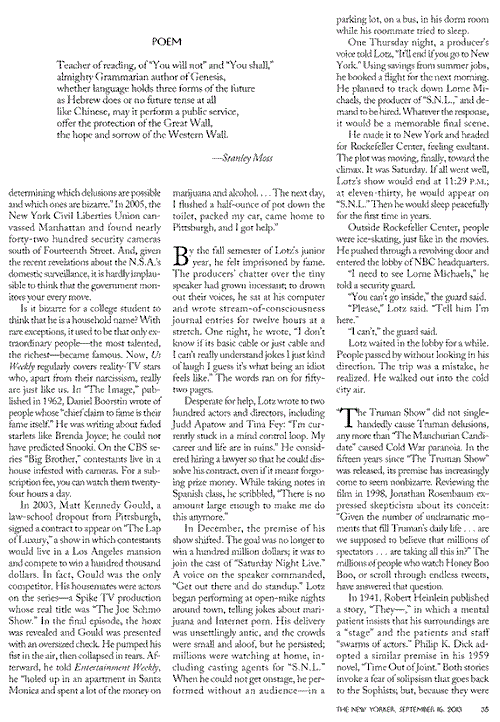The Blue Buildings
in the Summer Air
by Wallace Stevens
(Collected Poems, pp. 216-217)
I.
Cotton Mather died when I was a boy. The books
He read, all day, all night and all the nights,
Had got him nowhere. There was always the doubt,
That made him preach the louder, long for a church
In which his voice would roll its cadences,
After the sermon, to quiet that mouse in the wall.
II.
Over wooden Boston, the sparkling Byzantine
Was everything that Cotton Mather was
And more. Yet the eminent thunder from the mouse,
The grinding in the arches of the church,
The plaster dropping, even dripping, down,
The mouse, the moss, the woman on the shore…
III.
If the mouse should swallow the steeple, in its
time…
It was a theologian’s needle, much
Too sharp for that. The shore, the sea, the sun,
Their brilliance through the lattices, crippled
The chandeliers, their morning glazes spread
In opal blobs along the walls and floor.
IV.
Look down now, Cotton Mather, from the blank.
Was heaven where you thought? It must be there.
It must be where you think it is, in the light
On bed-clothes, in an apple on a plate.
It is the honey-comb of the seeing man.
It is the leaf the bird brings back to the boat.
V.
Go, mouse, go nibble at Lenin in his tomb.
Are you not le plus pur, you ancient one?
Cut summer down to find the honey-comb.
You are one… Go hunt for honey in his hair.
You are one of the not-numberable mice
Searching all day, all night, for the honey-comb.
















